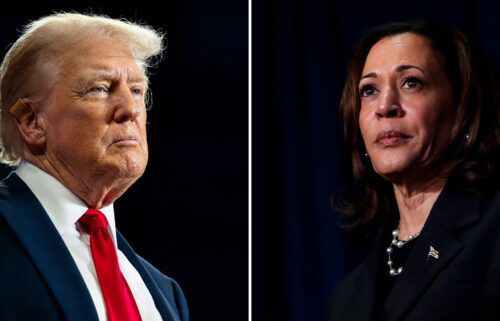Defense and cybersecurity stocks have gotten a boost from US-Iran tension. Can they hold onto their gains?

A version of this story first appeared in CNN Business’ Before the Bell newsletter. Not a subscriber? You can sign up right here.
The high-stakes standoff between the United States and Iran in the past week has sent investors scrambling to buy shares of companies that specialize in defense and cybersecurity — a sign that traders think tensions in the Middle East won’t blow over any time soon.
Shares of companies whose businesses could benefit from geopolitical conflict have rallied this year, Goldman Sachs’ chief US equity strategist David Kostin and colleagues observed in a note Friday. Stock in military shipbuilder Huntington Ingalls Industries is up 8%, while shares of Northrop Grumman and Lockheed Martin have risen 9% and 6%, respectively.
Cybersecurity specialists Zscaler and CyberArk have seen shares jump 18% and 17% year-to-date, respectively. CrowdStrike’s stock has increased 15%.
Seth Seifman, aerospace and defense analyst at JPMorgan, pointed out that some of the boost to defense stocks can be attributed to the fact that they’re viewed as safe havens in times of geopolitical and economic uncertainty.
Seifman said in a recent note, however, that “with so many unknowns,” he was reluctant to view the US killing of Qasem Soleimani, Iran’s top general, as an opportunity to buy defense stocks more aggressively over the long term.
The energy sector also stands to benefit from an escalating US-Iran fight. But Goldman Sachs notes that shares have already “given back their gains, suggesting little investor belief in higher long-term oil prices.”
Remember: Energy was the worst-performing sector of the stock market last year. Sustained higher oil prices could help drive improvement in 2020. But analysts think that without a major disruption to supply, oil will stay in the $60 to $65 per barrel range, in part due to the strength of American shale producers. That won’t do much to help suffering stocks.
Can anyone get Boeing through this mess? He’s going to try
Dave Calhoun might have the toughest job in corporate America: Fixing Boeing.
As he steps into the CEO job on Monday, Calhoun is tasked with winning approval for the 737 Max to fly again, the first step in ending a 10-month crisis that has cost the company billions of dollars, my CNN Business colleague Chris Isidore reports.
He must also work to repair Boeing’s reputation for safety and quality that was badly damaged by the plane’s grounding in March following two crashes that killed 346 people.
To succeed, Calhoun, a veteran of General Electric, private equity firm Blackstone and media measurement firm Nielsen, will have to win back the trust of regulators, investors and the public.
“What’s Boeing need right now? It needs an inspirational leader,” Ron Epstein, aerospace analyst with Bank of America Merrill Lynch, told Chris. “You have a work force demoralized by what’s happened. You have to make airline customers comfortable, make regulators comfortable. You need to be a good operator because your largest production line is shutting down. Can Dave do all that? I’m not sure.”
Remember: A trove of internal communications released last week doesn’t help matters. One employee described the jet as “designed by clowns, who in turn are supervised by monkeys.”
Investor insight: The company’s shares rose more than 130% under Calhoun’s predecessor Dennis Muilenburg, who took the reins in July 2015. But they’ve shed 25% since last March. Muilenburg left the company with $80 million in stock and other assets but no severance, the company said last week.
Here’s what China is doing to avoid mass layoffs
The Chinese government wants to do whatever it can to protect the economy in 2020. It’s got an enormous task ahead of it, my CNN Business colleague Laura He reports.
Beijing has made clear that the world’s second largest economy cannot spiral into a slump and risk mass layoffs as it tangles with rising debt, cooling domestic demand and an ongoing trade war with the United States. In recent weeks, the government has bombarded the economy with a wave of stimulus measures, from tariff reductions that could help soothe the pain from rising prices, to rate cuts that could fuel more lending.
Authorities are also amping up the language they’re using to describe the situation. China’s State Council last month called on local governments to “go to all lengths” to prevent massive job losses this year — what it characterized as the country’s top policy priority.
Have a few minutes? It’s worth reading Laura’s full story here.
Up next
Britain’s House of Lords meets Monday to begin debate on the Brexit withdrawal agreement, which is expected to easily pass. The United Kingdom is on track to leave the European Union by the end of the month.
Coming tomorrow: Earnings season kicks off in earnest. Delta Air Lines, JPMorgan Chase, Citigroup and Wells Fargo will report results.


